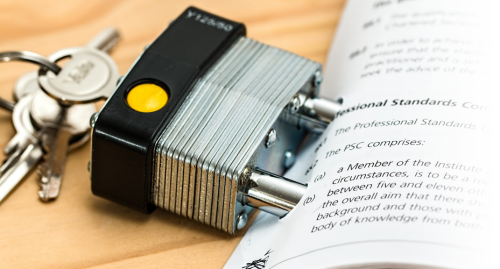
Right to Information and Transparency
The resources on this Module explore the nature and extent of the right to information.The readings include standards on the right to access government held information, open court and open parliament.

The resources on this Module explore the nature and extent of the right to information.The readings include standards on the right to access government held information, open court and open parliament.
Published by Masaar, a community of lawyers and technologists advancing digital rights in Egypt, this paper explores the interdependence of freedom of information and freedom of the press and media. Noting that more than fifty constitutions around the world recognize the access to information right, the paper explains how significant freedom of information laws are and what positive impact they have on press freedom: freedom of information enables journalism - investigative journalism in particular. Other areas directly impacted by freedom of information that the paper explores are protection against censorship, public trust, accountability of those in power, media pluralism, and democracy in general. “[T]he right to information can enable media to challenge dominant narratives and offer a platform for marginalized voices,” the paper argues. “[...] media freedom is essential for a healthy and vibrant democracy, protecting human rights, promoting public discourse, and informing the public.”
Masaar. Freedom Of Information And Its Impact On The Freedom Of The Media And Press. Masaar: Cairo, 2023. https://masaar.net/en/freedom-of-information-and-its-impact-on-the-freedom-of-the-media-and-press/
This book on Freedom of Information by Toby Mendel helps to answer some of the questions faced by “those tasked with drafting and/or promoting legislation guaranteeing the right to know in accordance with the principle of maximum disclosure”. The book describes “the international standards which have been established in this area and some of the key features of effective freedom of information legislation. Importantly, it illustrates the way in which ten countries and two international organisations have dealt with these difficult issues.”
UNESCO, Toby Mendel. Freedom of information: a comparative legal survey. ISBN:978-9937-8075-7-9 (Nepali). 2008.
“This Article will start from the premises and proposals of [extant scholarship]. Through developing, modifying, and supplementing [these] theories, as well as taking into account the new speech conditions in the Internet Age, this Article aims to develop systematically, though not completely, the theoretical basis and practical implications of the freedom of speech as a right to know. The relationship between the two rights is not unidirectional: not only could the freedom of speech form the basis for the right to know, but also the right to know could enrich the doctrine of the freedom of speech. The characteristics of the right to know could make the freedom of speech more direct, more practical, and more enforceable. We should accordingly interpret the freedom of speech as a right to know. This Article’s thesis does not necessarily require the right to know to be expressly written into the Constitution (although this is one reasonable approach), nor does it contend that freedom of speech is the only basis for the right to know. Rather, this Article reformulates the theory of free speech through the module of the right to know. Having done that, the right to know will, in effect, be constitutionalized because it will become a part of the freedom of speech. What’s more important is the impact on our current free speech jurisprudence: using information as both a shield and a sword, this new and reformulated right will better respond to the age we are in where speech is information, information is power, and the liberty of speech is the freedom and control of information.”
Huang, Tao. “Freedom of Speech as a Right to Know”. University of Cincinnati Law Review 89, no. 1 (2020): 106-139.
The UN Human Rights Committee adopted (102nd Session) General Comment 34 on States parties' obligations under Article 19 of the ICCPR: Freedoms of opinion and expression (CCPR/C/GC/34). The General Comment provides guidance to States on what the freedoms of opinion and expression mean in practice. Among others, the General Comment refers to: Freedom of expression and the media; Right of access to information; Freedom of expression and political rights; The application of article 19 (3); Limitative scope of restrictions on freedom of expression in certain specific areas; The relationship between articles 19 and 20.
UN, Human Rights Committee. General Comment No. 34. CCPR/C/GC/34. 12 September 2011
The Centre for Law and Democracy conducted a first-ever global “stress-test” study on the right to information (RTI) laws and their implementation. The report builds on the participation of volunteers across 122 countries and the results of 146 RTI inquiries filed in 76 States. In the key findings, 38% of requests received “mute refusals” or “no substantive reply at all,” 54% resulted in some information disclosed, and only 42% could be described as “full disclosures.” While explicit rejections scored low, the high no-response rate presented a problem. “Mute responses are a fundamental denial of the right to information,” the authors stressed. “If requests go unanswered, the right exists only on paper.”
Toby Mendel, Raphael Vagliano. Global Comparative Testing of Responses to Requests for Information, Centre for Law and Democracy, September 2025. https://www.law-democracy.org/wp-content/uploads/2025/09/IDUAI.report.25-09-26.pdf
“This paper addresses how the use of artificial intelligence (AI) affects freedom of expression and media freedom. While AI can improve communication and information access in numerous ways, including through legacy media, this paper focuses on the main concerns when AI is not deployed in a human rights-friendly manner…This paper also addresses how biases both in datasets and of human developers may risk perpetuating existing inequality, how AI affects legacy media and how the COVID-19 pandemic aggravates the above-mentioned concerns. Providing policy recommendations, this paper concludes that states and the private sector need to guarantee that the design and deployment of AI are grounded in human rights, with transparency and accountability being ensured at all stages.”
Julia Haas. “Global Conference for Media Freedom: Freedom of the Media and Artificial Intelligence”. 2020. https://www.international.gc.ca/campaign-campagne/assets/pdfs/media_freedom-liberte_presse-2020/policy_paper-documents_orientation-ai-ia-en.pdf.